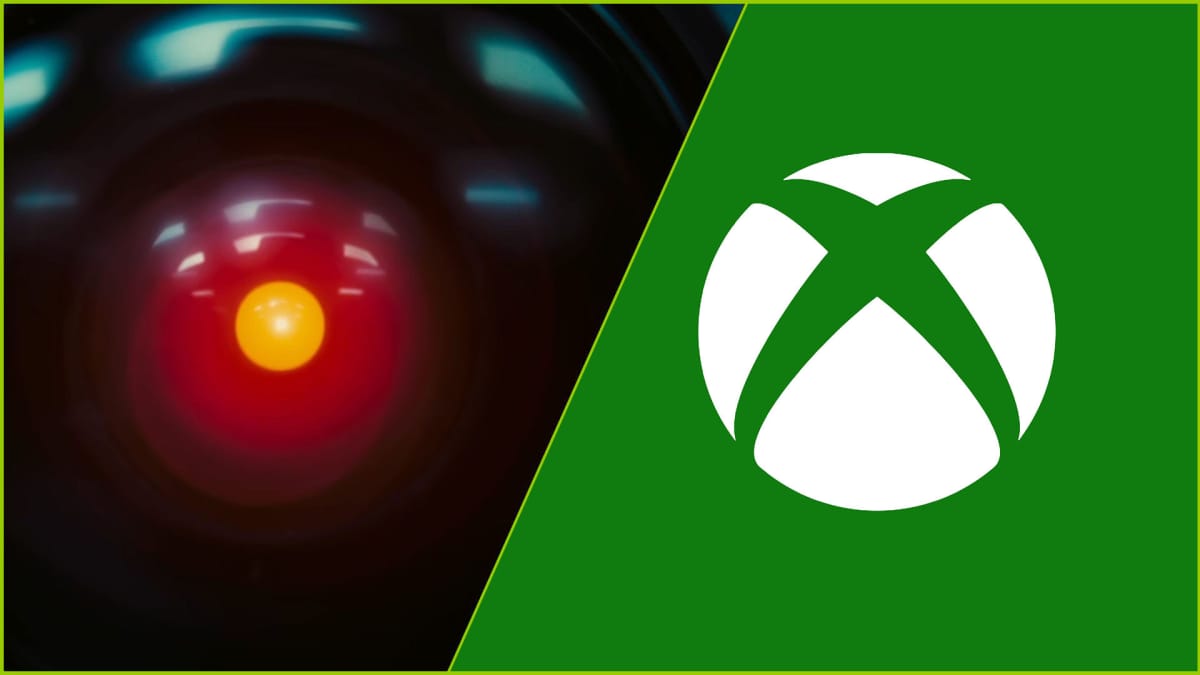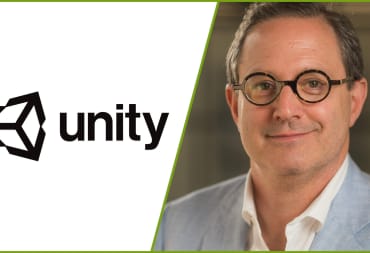Today Xbox chief financial officer and corporate vice president of finance and operations Tim Stuart spoke about the application of AI to the gaming business, the acquisition of Activision Blizzard, the business model based on Game Pass, and how Microsoft measures success in gaming, at the Wells Fargo TMT Summit.
During the livestreamed conference, Stuart mentioned that he has "never been more excited about a technology shift in the gaming landscape" as he is with AI, comparing it as an "inflection point" for Microsoft to the shift from discs and consoles to online games and games-as-a-service like Fortnite and Minecraft.
He then described what he sees as the advantages of AI for developers.

On the developer side, you think about the millions and millions of dollars in a game spent on localization, script, how you think about players moving from point A to point B and you have non-player characters have dialogue.
AI can take care of all that. You now say "I need the player to get from A to B" and instead of having to write thousands of lines of scripting or code, you just have the AI get you from A to B. Things like localization and putting things in new languages.
When we think about game testing, a million AI bots can run through a level of Minecraft and find where players get stuck, where they spend money, how they think about the level. So, this is -pun intended- game-changing for the developer.
On the consumer's side, Stuart brought up as an example a player in Minecraft meeting Hermione from Harry Potter driven by AI running through Hermione's scripts, and having a "nice unique moment."
Moving back to the development side, Stuart mentioned that if there are 100,000 game developers in the world across all companies, with AI you can generate code, instances, games, and art assets opening up the ability for "anyone in this room to be a game developer."
That, according to Stuart, changes things from 100,000 game developers to millions and millions.
The barista at your local Starbucks has an awesome idea for a game and they can now use Copilot and AI to go create a great mobile experience.
Stuart believes that there will be an explosion of "citizen creators" releasing simple AI-generated mobile games and creating "a new wave of multi-platform unique experiences, obviously, all built in AI."
While he thinks that "we're still a little ways away from that" now people can already generate art assets and ideas are already being generated as well, so Stuart expects to see "a pretty fast acceleration on putting the art plus the code plus the level design together" creating "some great games in the short while."
We also hear that Microsoft is "full speed ahead" on AI, with CEO Satya Nadella, CFO Amy Hood, and the senior leadership investing resources, time, energy, and effort in this space.
Speaking of Copilot and games, Stuart talked about the possibility of players receiving recommendations of games fitting their tastes and moods. So if you like Starfield but you're in the mood for something spooky, a Copilot-like AI can help.
We see you like these kind of games, your friends play these types of games, you should go play Dead Space, pick a game like that.
Stuart sees a Copilot-like example with a recommendation engine as "a huge value driver for customers." This creates monetization opportunities for the company as well because it gets people into more games and playing more often, and that's "kind of our secret sauce."
Moving on to the recently completed Activision Blizzard acquisition, Stuart explained what it's all about and that the pace of the integration between the two companies is considerable
But really, at the highest level, it's leveraging what Activision is so good at, which is consoles, and PC, and mobile... How do we take that great DNA, make it an accelerant to the IP that we have, leverage the great assets that they have and the expertise that they have?
And thankfully we both talk a gaming language and even the few months since we've been a entity, the speed of which we've integrated and the speed at which we've worked together is really impressive.
Stuart continued by describing the opportunity created by the acquisition on mobile platforms. Activision, Blizzard, and King know how to launch their IPs on mobile, how to develop them, and how to iterate quickly, and "that DNA is Gold."
Now Microsoft can leverage that know-how with its own IPs and address the billions of gamers that the company couldn't reach before.
Stuart sees the possibility of providing players with a variety of content, on top of Microsoft's own mobile games on the casual end, the citizen developers mentioned before could build simpler games, while Microsoft, Activision, and Blizzard could AAA and high-end experiences like Halo, Minecraft, Call of Duty, and Diablo.
Activision is capable of launching Call of Duty every year and according to Stuart, that's a "huge feat" due to the amount of developers they have and the work they put into it, and now Microsoft gets "to ride along that wave with them." He added that learning from the Call of Duty team has been "very, very valuable."
Stuart also mentions that Activision and Blizzard's games have gone from lower-margin third-party entities to high-margin first-party. Call of Duty on Xbox will also go from low-margin to high-margin and Microsoft will be able to drive high-margin sales on PlayStation and Nintendo as well.
Interestingly, Stuart also talked about World of Warcraft, mentioning that it has a subscription, which is a high-margin business. So that "brings in a high-margin business into a traditionally lower-margin business when you think about the Xbox console and hardware."
Microsoft is expanding its "operating leverage." First-party, subscriptions, and advertising are all high-margin businesses that the company wants to expand into.
While he's "not announcing anything broadly," Stuart explains that Xbox's mission is to bring its first-party experiences and subscription services to every screen that can play a game.
That means smart TVs. That means mobile devices. That means what we would have thought as competitors in the past, like PlayStation and Nintendo. We're going to Nvidia's GeForce Now, their gaming subscription service.
Activision's acquisition allows Microsoft to bring its businesses to these endpoints in a much faster way compared to trying to do it on its own.
Stuart also talked about the fact that six or seven years ago Microsoft stopped announcing the number of consoles it sold, but that was making a point saying that the business is about content and services, more customers spending more money.
Stuart likes the Game Pass model because it's a paid annuity instead of having to bet on big game launches every quarter or every year, smoothing the industry's seasonality out. He also talked about "business model diversity."
Gamers can subscribe to Game Pass, buy games digitally, or have advertising fund their gaming, and however they want to monetize, Microsoft is trying to find a way for them to spend money within the Xbox ecosystem. That's a "very good accelerant in the content and services landscape."
This also helps with geographic expansion as there are areas of the world in which consoles aren't widespread.
Stuart also explained that the move to Game Pass Core from Xbox Live Gold was motivated by the idea that paying for multiplayer feels antiquated. Yet, Microsoft has millions of people doing it, so they decided to migrate them into a Game Pass catalog.
When these gamers experience the value of Game Pass, they can opt to upgrade to higher tiers to get the full experience and cloud streaming. On top of that, Stuart believes that Game Pass creates a "great relationship" with gamers.
And one of the great things about gaming is, if you find a way to drive value to gamers and they're paying for that value that they enjoy, it's actually a great relationship. They don't feel like they're being grinded down on the dollars.
Like, I'm paying $17 a month and I get access to hundreds of games.The value is there. And for us, we offer most of our games if not all that we've had before Activision. When a game launches, it's included in Game Pass as well, so that's one of the unique value propositions that we have.
We also hear that Microsoft's framework as a whole company allows Xbox to focus its efforts on what's best for gamers and what's best for the business, leveraging Microsoft where possible to do it quickly.
Interestingly, he concluded by talking about how Microsoft measures success in gaming. He explained that it's a big and growing market where Microsoft wants to grow its share.
Success for us is we can keep growing that content and services revenue double-digits. [...]. If we can grow faster than the market is growing, we are taking share in the gaming market.
And that's where we want to be. It's a 250 billion dollar market. We are not 250 billion dollars.
Early on we walked into Satya's office, Phil Spencer who runs Xbox and I. We had both taken our jobs about the same time and we've known each other for a decade before that.
We're like, let's go do this gaming thing. We walk in Satya's office: "Hey, we're going to spend 2 and a half billion dollars on this thing called Minecraft. Jokingly, he says, "A blocky game, you chop down trees... 2.5 billion dollars for this thing?" It turns out one of the best acquisitions ever made in history.
But he said: "I don't want to talk about Minecraft. Tell me why we're in gaming." We put down the deck that we had for that acquisition, and that was a moment for Satya, Phil, myself, and Amy Hood, of why is Microsoft in gaming.
That was eight or nine years ago, and the answer really is why is Microsoft in any business? It's a big and growing market that we have an ability to take and win share.
And that's why we do gaming at Microsoft. Of course, we can leverage assets and of course, we need consumer brands at Microsoft that are meaningful.
In my opinion, you can't just be all commercial-led. You have to have a good consumer lens too. But in the end, it's grow share in a big and growing market and that's what we're here to do.
If you'd like to read more about the topic, you can take a look at our article reporting Microsoft's latest financial results.







